There are really no basic recreational classes that are absolutely a must other than the original Open Water class. However, I do recommend several classes for specific reasons. A shortened version of this for when you are getting started is also available that includes my opinion on in which order to take your first few classes.
Yes...but what about....
....Advanced Open Water or Master Diver....those are "levels" of diver. They are not a class. You get awarded those levels once you have taken certain classes and have a certain number of dives in your log. They are not classes you take....well sorta...Advanced Open Water is offered by many agencies immediately after Open Water training as a way to keep you progressing and them making money. I don't recommend taking the Advanced Open Water "class" which gives you a single dive within a range of specialities as a "taste"....take the full specialty classes instead...if you can afford it.
Class Discussion
* I'm using the SSI naming convention and graphics because that is the agency I primary used for my training, not because I recommend or don't recommend SSI specifically. I have nothing bad to say about SSI as a training agency (from my experience) and their training material is exceptional when I compare to other agencies I've taken classes with.
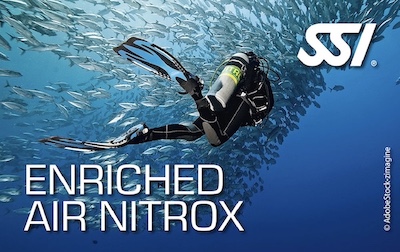 10s of thousands of divers never dive with Nitrox. But more and more places will provide Nitrox for free when you rent a tank from them...so you should. One of the cheaper and easier classes to take since it does not involve any actual dives, but you do learn a little bit about gas science.
10s of thousands of divers never dive with Nitrox. But more and more places will provide Nitrox for free when you rent a tank from them...so you should. One of the cheaper and easier classes to take since it does not involve any actual dives, but you do learn a little bit about gas science.

Night & Limited Visibility
Here in Chicagoland...we dive in murky waters from day 1 so not real useful as a skill heavy class. It can be a bit daunting for some people to be diving in the dark, so don't assume you'll be just fine. Have an instructor around for your first go. Primarily, it will introduce you to the use of flashlights underwater. It also gives you a reason to buy your first flashlight.

Navigation
I put Navigation after Night & Limited Visibility only because it means you'll get a couple more dives in before you are asked to hold your bouyancy level and head in a straight line while looking at you compass. You'll do some land drills for basic compass use and learn some other underwater tricks. Then off you'll go into the water to try going in a straight line, coming back to your starting point, going a square, etc. It also gives you a reason to buy a compass.

Deep Diving
Not technically needed, and I went 80 dives before I took the Deep class because there was no good place to do the deep dive around me at the time. But if you feel apprehensive about going deeper than 60ft...you can have an instructor with you for your first couple times down near the gas narcosis zone. There is an argument to be made regarding "not diving beyond your training" that could change your mind into doing this class sooner than I did.

O2 Provider
Many dive agencies offer some kind of Oxygen Provider course. If yours does not, then find a local DAN instructor and take one from them.
CPR / AED
Many dive agencies bundle the CPR & AED course with the Oxygen Provider course. If yours does not, then find a local Red Cross or DAN instructor and take one from them.

Rescue Diver
Much of this class value is doing simulated diver recovery, tows and responses to in water emergencies. As part of the class a second instructor will act as the injured/unconcious diver and you'll get to experience as close to possible real world scenario as can be reasonably made.

Science of Diving
(SSI Specific) Super interesting and a deep dive into the science parts of diving. It's also a prerequisite for some of the higher levels. The best basic theoretical class I have taken. Loved it.
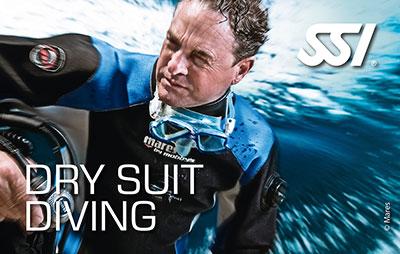
Drysuit
Assuming you have or are getting a drysuit you really should get training. You screw this up and you can either die (suit squeeze) or have a really really bad day (feet first ascent)
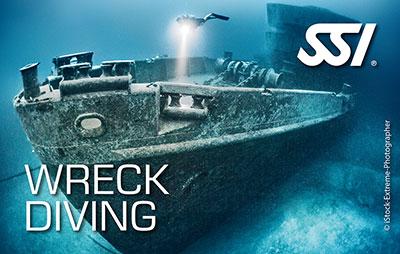
Wreck (Limited Penetration)
Good intro to the proper use of reels and a couple other tricks. Great way to get your first Lake Michigan wreck dive. It is required if you want to take the Advanced Wreck Diving class in the technical track

Search & Recovery
I want to go find golf balls, lost drones and help my neighbor find his lost glasses in the pond. Absolutely!
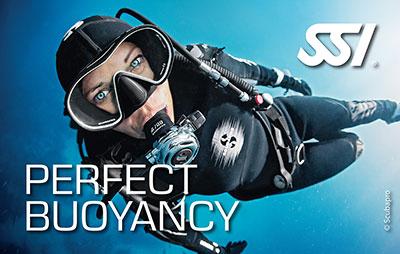
Advanced or Peak Performance Buoyancy
After you have 50 dives under your belt, if you still feel like you need help...then take this class and make damn sure it's from an instructor who has perfect trim themselves. Or better yet, save up a bit more cash and take the GUE Fundies class instead which is 100x better for buoyancy and trim than any other class option.
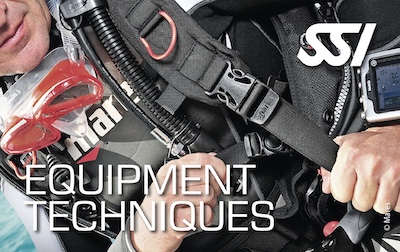
Equipment Specialist
Same stuff you learned in OW class, they just use more words.

Altitude Diving
There are certain additional risks given the change in pressure that comes with altitude, but extremely rare diving situation for most of us.

Boat Diving
Don't take up too much space and do the "giant stride" they taught you in OW class. I've put together a couple tips I've learned about boat diving. If you want to learn about Boat Safety, DAN has free certification classes for that.

Computer Diving
If you needed a Windows or Mac class last time you bought a computer...take this class. Otherwise...read the manual.

Photo & Video
Watch some YouTube videos for free. If you want training to be better than point and shoot...then hire an actual photography person and pay for their time...not the certification course.

Drift Diving
Stop kicking. Stay with your buddy. Yup...you just learned to Drift Dive

Various Ecology Programs
All of these programs can be easily duplicated for free by searching YouTube for that particular topic or visiting your local library.

Diver Propulsion Vehicles
I mean come on...who doesn't want to zoom around underwater without actually owning a DPV?! But you don't need the class to rent/buy one if you have that kind of cash. But you probably won't be using it properly or in a safe manner.
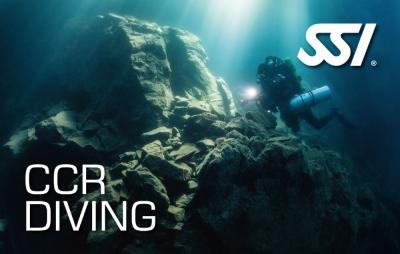
Closed Circuit Rebreather
As of mid-2024 there is at least one agency that is marketing a "recreational" Closed Circuit Rebreather (CCR). Though they require the same training and pre-requisites of any other rebreather, I don't recommend this until you are well beyond the "Advanced" level of diving and most certainly not to the vast majority of Recreational divers because of the increased complexity of diving a CCR will generally exceed the situational awareness capability of most recreational divers.

Solo / Self-Reliant Diver
Learn about pony bottles and redundancy and being "self-reliant"...I won't ever be solo diving, but it is an interesting course to be sure.

Ice Diving
I'd probably freeze to death during the class...but if this is your jam...for love of all things holy...get some training. Frozen water is no joke.






















